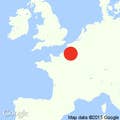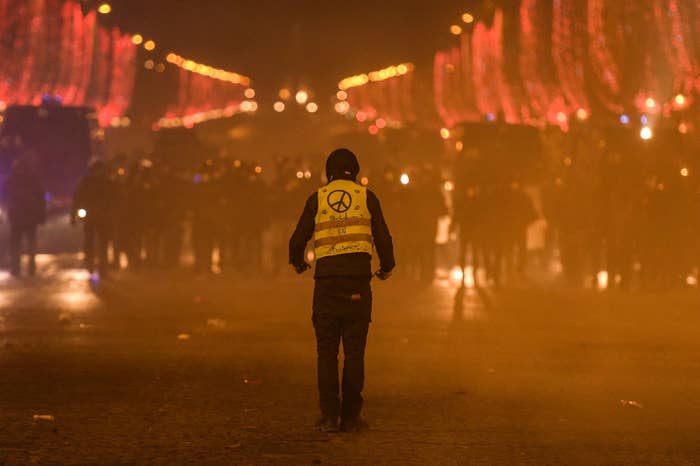
PARIS — The Yellow Vest movement in France is being divided by an announcement that a group of protesters will field a list of candidates in elections to be held this May.
The group is running to represent France in the parliament of the European Union. The announcement has intensified a bitter fight over who can speak for the movement, which began as a leaderless outpouring of frustration on social media over a range of issues, from the gas tax to the power of international finance, and opposition to French President Emmanuel Macron.
Yellow Vest protester Ingrid Levavasseur, a 31-year-old health care worker from northern France, appeared on TV Wednesday to say Yellow Vests would field up to 79 candidates in elections for the European Parliament in May.
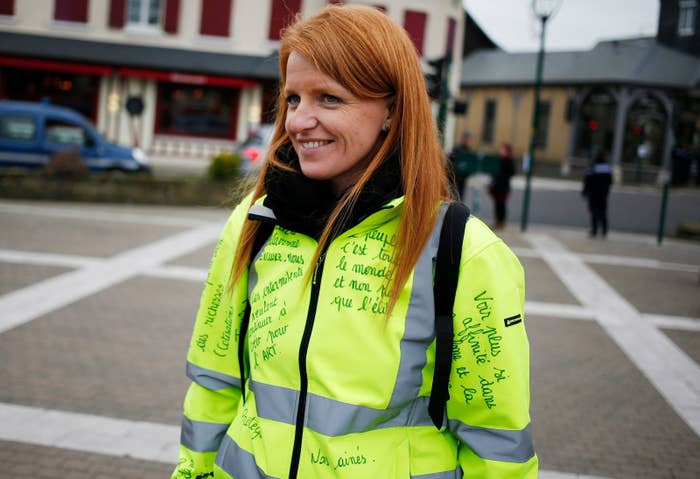
“The social citizen movement born in our country on the 17th of November shows the necessity of transforming this anger into a human-focused political project, capable of bringing answers to the French people,” said a statement accompanying the announcement.
The Yellow Vests have no unified set of leaders, but rival camps exist that are fiercely divided on who speaks for the movement, and whether it should go into politics at all.
Levavasseur’s group is one of at least three different Yellow Vest factions that are planning to field candidates in France for May’s elections. And many supporters of the protests believe that jumping into the electoral system means cooperating with a kind of politics that they think is inherently corrupt.
Some of the dozens of Yellow Vest Facebook groups erupted in open conflict following the news, while some of the most visible Yellow Vest protesters issued formal denunciations of Levavasseur’s plan.
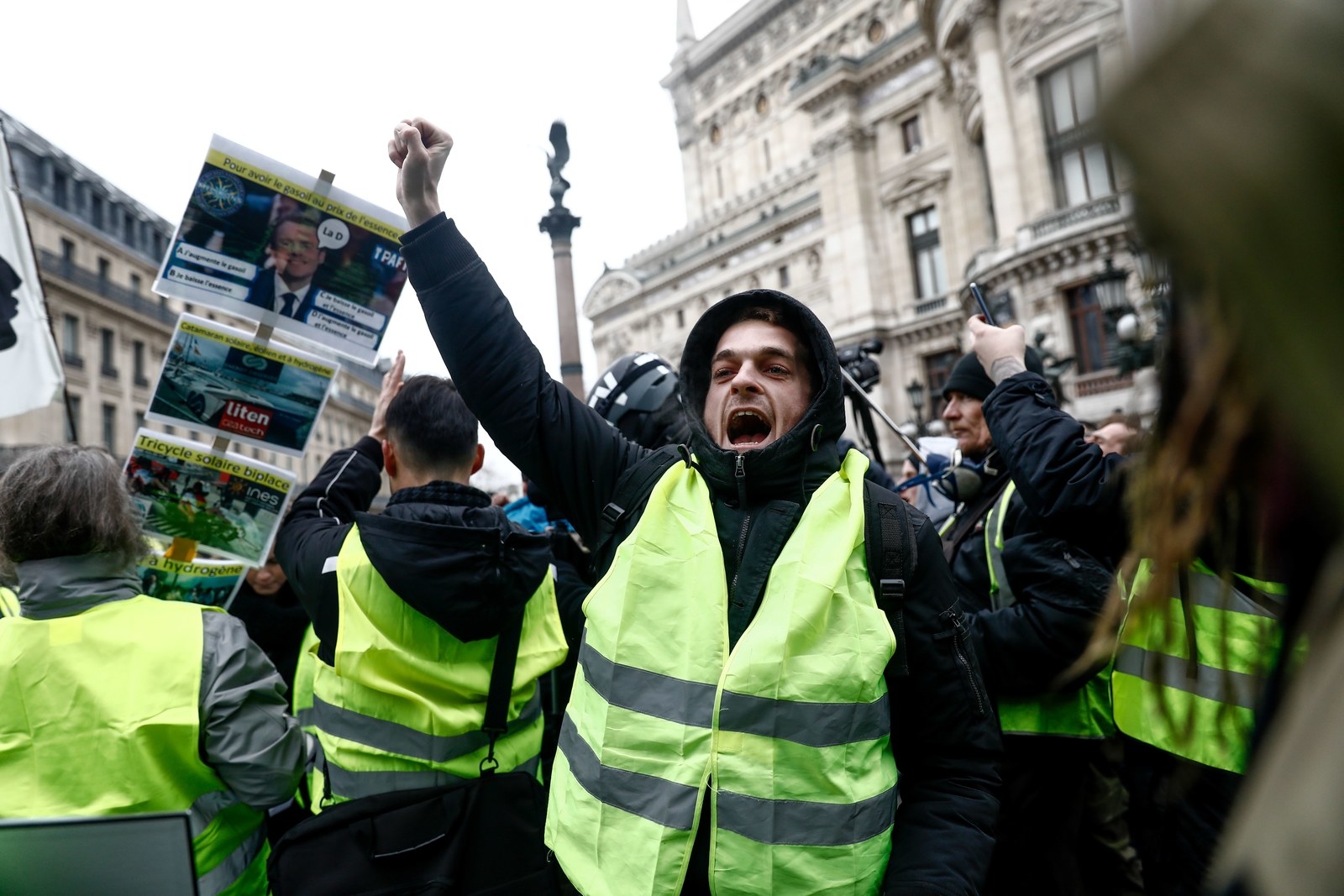
“No, the Yellow Vests don’t want a list in the European elections,” read a press release from the right-leaning truck driver Eric Drouet, who became one of the best-known Yellow Vest protesters in part thanks to his two arrests connected to the demonstrations. “The movement does not belong to anyone and every decision must be approved by an absolute, not relative, majority.”
The movement is entering a new phase as it approaches the 11th weekend of protests, said Thierry-Paul Valette, an activist based in Paris who runs a Facebook page with 14,000 likes called Yellow Vest Citizens.
“We’re in a transitional period,” said Valette, who considers himself as left-leaning and denounces nationalist and racist parts of the movement. “It’s a big war between chiefs ... the Yellow Vests [are a movement with] multiple influences, multiple streams.”
This fight could play out in the streets of Paris on Saturday. Valette has called for an occupation of the République square in central Paris, and his original Facebook event page had more than 4,000 people saying they’d attend within two days of launch. But Drouet, who represents a right-wing stream Valette opposes, has also endorsed the concept, known as the Yellow Night, and the invitation has bounced across the Facebook groups of warring camps.
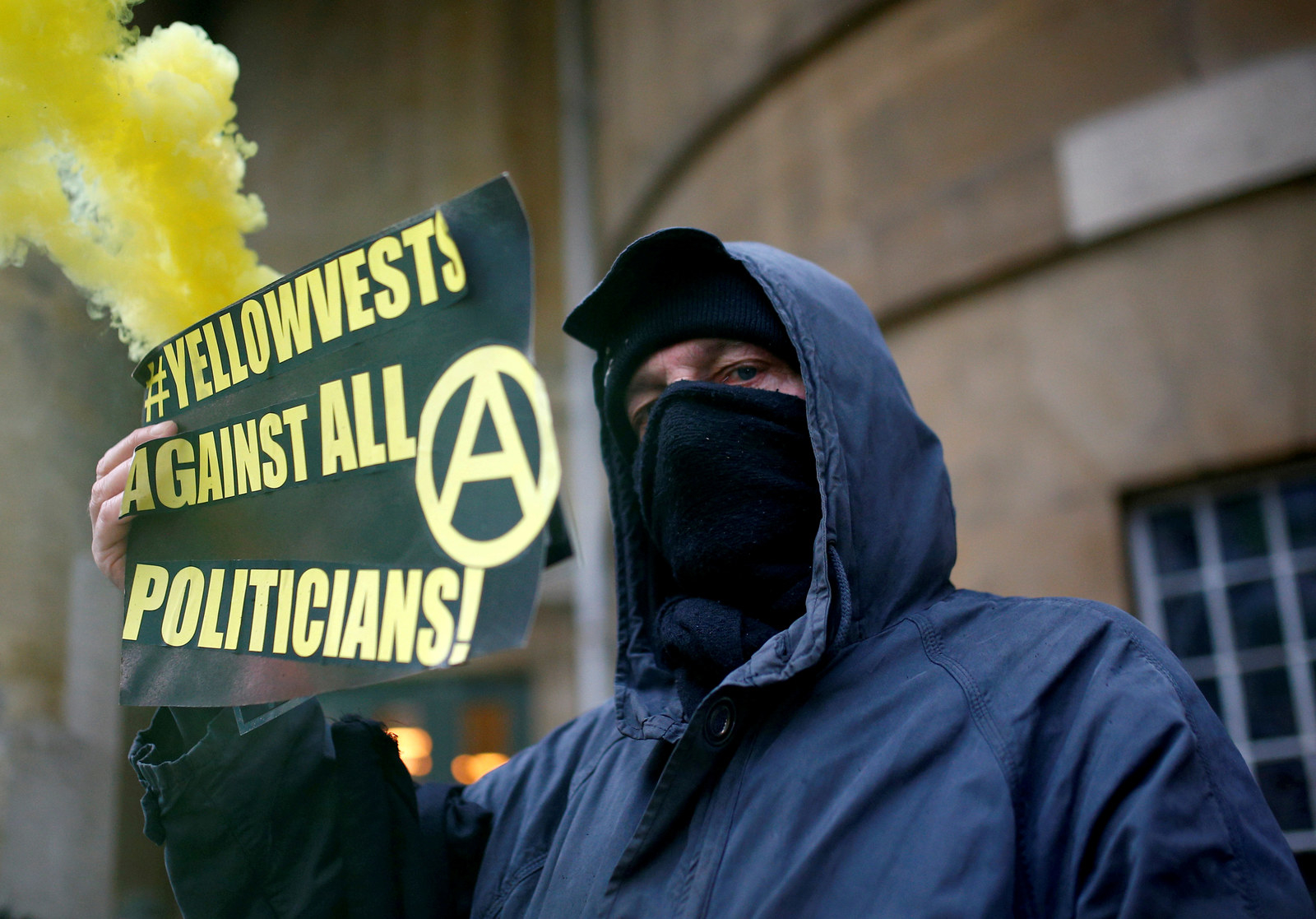
The situation this weekend is potentially more volatile because the first major anti–Yellow Vest protest is being organized in another part of Paris the following day. It’s organized by a coalition of groups begun on social media, including one called the Blue Vests and another called the Red Scarves. They say they are denouncing the street violence that has accompanied some Yellow Vest protests, though the Red Scarves’ Facebook page includes many calls for violence against the Yellow Vests.
Valette said he is not worried about the competition between Yellow Vest lists, because he is skeptical that any can win enough votes to get seats in the European Parliament. Recent polls show a Yellow Vest list could win as much as 13% of the vote — coming in third place — but he believes most people who say they would support a list will switch their votes back to established parties at the last minute.
The main goal of his list, he said, is to divert support from the party led by the far-right Marine Le Pen, who came in second to Macron in the last presidential election. Her anti-immigrant, anti-EU party National Rally (formerly National Front) surged in polls conducted last fall as the Yellow Vest movement shook Macron’s government, and it remains the strongest party in opposition to his leadership. But he thought more radical Yellow Vest spokespeople, who have called for entirely upending the political system, were raising expectations so high that supporters of the movement were bound to be left angry and frustrated.
He said that in his opinion the Yellow Vest movement was “going to die one day.” “Either we win,” Valette said, “people give us the victory and it’s over, it’s done, or we won’t get what we’re fighting for, and people will tire out.”
But there’s no agreement in what victory looks like. Macron has already rescinded the gas tax, which initially sparked the protests last fall. He’s also launched a kind of listening tour around the country and solicited grievances from an online platform, which have asked for changes including changing the speed limit to a new constitution.
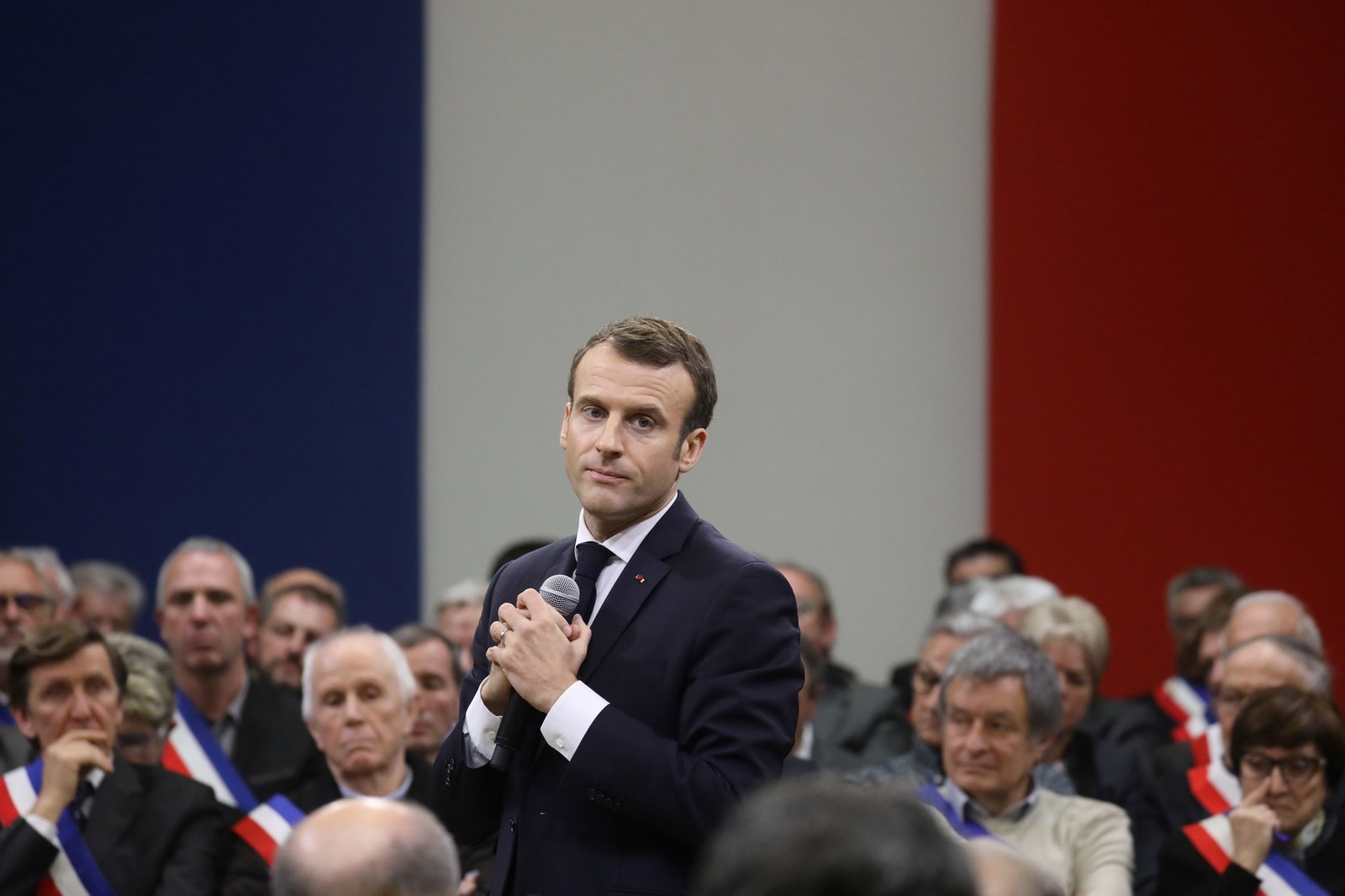
Many in the movement are converging to demand legislation be changed through a popular referendum, which is known in French by the acronym RIC. Levavasseur tried to lay claim to this idea in announcing her list Wednesday, which will also be known by the acronym RIC, standing for Rally for the Citizens’ Initiative.
Maxime Nicolle, who runs one of the largest Yellow Vest Facebook groups under the name Fly Rider, responded to Levavasseur’s announcement with a livestream calling for people to boycott the European elections because the movement was meant to fundamentally reject traditional party politics.
“The Yellow Vest movement was always intended to be apolitical,” he said in a phone interview. “The list is seen as a great betrayal by many Yellow Vests.”


